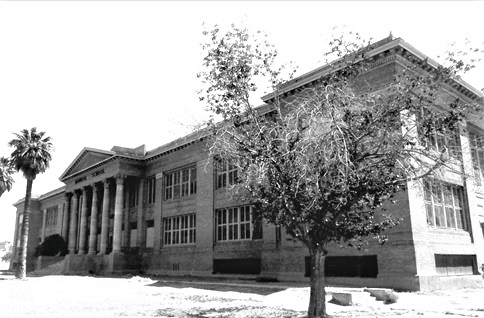Bond program will help raise Phoenix's quality of life. Vote yes on the 4 measures

Arizona State University campus in downtown Phoenix has paced, in no small way, the city's overall dynamic growth.
The arts scene, restaurant culture and entertainment district all got a big boost following the campus' creation in 2006. An era of robust commercial and residential building ensued and plays out in other parts of Phoenix to this day.
More than 11,000 students now enroll in the downtown Phoenix campus and the various colleges, including the colleges of Nursing and Health Solutions. The university's presence dramatically changed the landscape.
Such is the power of a city's investment in capital projects.
ASU was a major beneficiary of a $878.5 million bond package in 2006 that had a focus on downtown. Education accounted for nearly $200 million.
Projects ranging from a new crime lab, police precincts and affordable housing to amenities such as Arizona Opera and Ballet and Black Theatre Group all got significant infusion for new construction or renovations.
Today, 17 years later, the city of Phoenix looks to build on that success. It's seeking voter approval to issue $500 million in general obligation bonds to pay for new and upgraded infrastructure throughout the city's eight districts.
The ballot-by-mail election begins this week. Voters can return the ballot by mail, put it in a drop box or voting location, or vote in-person by requesting a replacement ballot.
Election Day is Nov. 7. Voters have until 7 p.m. to turn in their ballots that day.
The ballot features four questions, asking voters to allow the city to sell bonds in the amount of:
$214 million for fire, police, roadway and pedestrian infrastructure projects
$109 million for library, parks and historic preservation projects
$114 million for education, economic development, upgrades of city facilities for energy efficiency, and arts and culture projects
$63 million for affordable housing and a new senior center
The four measures deserve voter support.
This is how it works: Once voters gives Phoenix the green-light, city officials issue bonds to pay for the projects. The city then pays the debt over time with money collected from property taxes.
The last time Phoenix had a bond election was in 2006, which means aging facilities are in need of upgrades and new ones are needed to meet population growth.
The city held off a bond election until now in part because of the Great Recession, which depressed housing values and reduced the revenue from secondary property taxes to pay down the 2006 bond program.
City officials are confident property values are robust enough to incur this debt.
Among the projects the bond will support:
A much-awaited Latino Cultural Center, a project designed to recognize the Mexican, Indigenous and Central and South American presence in the region and their impact on the arts and culture. Twenty-one and a half million dollars is earmarked to seed that project.
The relocation of the Cactus Park police precinct in northwest Phoenix.
The continued creation and preservation of affordable housing units and the construction of a new senior center.
Two regional park/civic spaces, each with a library branch — one in Estrella Village southwest Phoenix, the other in Desert View Village in the northeast part of the city.
Funding to buy land for Phoenix's part in the multicity, long-term Rio Reimagined project to revitalize the Salt and Gila Rivers and create outdoor spaces for Arizonans to use.
Their time is now.
Additionally, "yes" votes translate to major renovations of three fire stations — each getting an additional fire engine and ambulance — and the building of a new station in northwest Phoenix near a $12 billion plant being built by Taiwanese microchip manufacturer TSMC.
The bond proposal will help build a new regional aquatic center at Maryvale Park, another one in central Phoenix and splash pads at other parks, as well as renovate a sports complex in the northern part of the city.
"Yes" votes also translate to money for a new Holocaust Education Center at the Jewish Heritage Center, a permanent home for Valley Youth Theatre and expansion of the Children's Museum of Phoenix.
The bond package won't change the rate of the secondary property tax for bonds, but it does amount to a tax extension once the 2006 bonds obligations are paid off.
The average homeowner is anticipated to pay $17 to $30 a year for the life of the new bond program.
It's a modest commitment for an investment that pays dividends for all of us who call Phoenix home.
Vote yes on the 2023 GO Bond Program.
This is an opinion of The Arizona Republic's editorial board.
This article originally appeared on Arizona Republic: Phoenix GO Bond to upgrade and build facilities deserves a yes vote